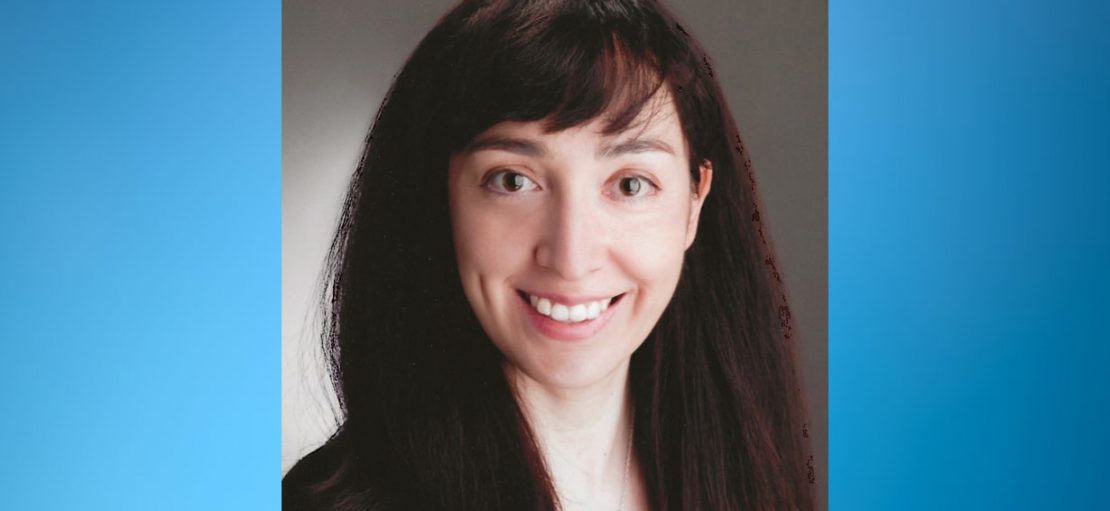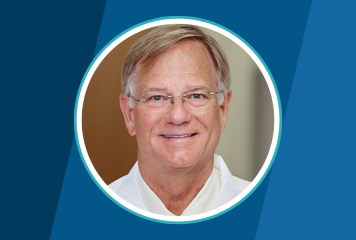Christina M. Lovato, MD, is an Associate Professor in the Division of Endocrinology at the University of New Mexico (UNM) Health Sciences Center and Sandoval Regional Medical Center, Program Director for the UNM Endocrinology Fellowship Program and Co-Director for the Medical Specialties Clinics at UNM. She practices general endocrinology with a particular focus in the management of thyroid/parathyroid, metabolic bone and neuroendocrine disorders. Dr. Lovato joined the ABIM Endocrinology, Diabetes & Metabolism Board in July 2024.
What attracted you to endocrinology and what keeps you engaged in your work?
I was attracted to endocrinology for multiple reasons. Before medical school, I shadowed an endocrinologist, and seeing the patients and conditions that she treated started my interest in endocrinology. As I learned more, I really liked the physiology, the hormones, the interplay with different glands and organs.
One thing that keeps me engaged is how my work impacts patients, and how I diagnose and treat patients. The other part I like is the long-term relationships I have with patients, being there to help them as they’re struggling to treat their condition, helping them through that and celebrating with them when they achieve success. That’s kept me going and has been rewarding in my career.
Recently, I had a patient who had a hemoglobin A1C level of 14% and was struggling with their diet, really at a low point of managing the condition. I introduced her to continuous glucose sensor technology and that has transformed her life; her A1C level is now 6.5%, which she never thought she would achieve, and it has made a huge difference in her life and health. Seeing a smile on her face, knowing you have that kind of impact, makes it all the better.
What made you interested in joining the Endocrinology, Diabetes & Metabolism Board? What areas of the Specialty Board’s work are you most interested in and hoping to contribute to?
I learned about the opening through an email notice ABIM sent out last year. What drew me was that the Specialty Board was looking to diversify its composition and seeking candidates from underrepresented geographic, racial and ethnic backgrounds. I thought, this is my opportunity to be able to contribute my voice. It was interesting to learn that I was the first applicant from New Mexico for that Specialty Board, and that made me more excited. I’m very excited to be able to be a part of it and give my perspective.
In this particular area of the country and the state, we have a high percentage of Hispanic/Latinx and Native American populations, and we have a lot of patients in rural areas that can’t always access medical care. They may present in later stages of disease, have issues with insurance or be unable to get certain treatments. We have to be innovative and find ways to be able to provide those treatments for them and help manage their medical conditions. That’s the perspective I’m hoping to bring to the Specialty Board’s work.
What is your personal philosophy about staying current with medical knowledge?
I think it’s crucial to stay ahead of the latest information and technology. That’s one of the other exciting things about endo, there’s so much information out there, new clinical trials and other investigations happening, and that’s part of what I help fellows navigate: what information should they be looking at, which guidelines should they be checking, how to keep abreast of the latest guidelines from societies and the latest research. By overseeing them I’m also keeping myself current.
I’m using the Longitudinal Knowledge Assessment (LKA®) to maintain my certification in Endocrinology, Diabetes and Metabolism, and it has been really useful. I am identifying areas where I can improve my knowledge and it translates to how I treat patients, particularly in diabetes and other areas where I haven’t seen certain cases. I really appreciate the references and rationales following questions.
You made the decision to maintain certification in Endocrinology, Diabetes and Metabolism, but not your initial certification in Internal Medicine; what led to your decision to take advantage of that flexibility and focus just on your specialty?
Once I completed my training in endo, I really wanted to focus my time and efforts on building up my knowledge and expertise in that area. But there is a general shortage of primary care providers. My goal is to reactivate my Internal Medicine certificate again in the future because serving as a primary care provider to some patients has really become important, so I want to have that certificate again. I plan to use the LKA to reactivate it because I really enjoy that format for endocrinology.
What issues or priorities are most important to you as a medical professional?
The most pressing issue for me is access to care: there is a shortage of endocrinologists, not only in our state but across the country. It’s partly why I decided to pursue the fellowship program director position, to help train future endocrinologists and make sure they can practice independently. There are other efforts toward alleviating this issue, for instance, if a patient can’t see a specialist in person, we make sure they have access to specialty care in some way. In New Mexico, we have the provider access service line, in which any medical provider within the state can call a specialist and ask for advice on how to manage a patient. That’s another reason it’s important to stay up to date on medical knowledge, because we’re asked by colleagues for advice on treatments and the latest care. Board certification really gives patients assurance that their physicians are knowledgeable and they can trust in our care.
What advice do you give to fellows and early career physicians?
The most important thing is to remember to see the patient as an individual and not a disease, and to try to learn as much of what they’re going through in their everyday life as you can. We might come up with a treatment plan, but if they don’t have the financial ability to follow it or if home life makes that difficult, we have to consider that. For instance, we might recommend that a patient follows a certain diet for diabetes, but we try to assess if they are encountering any barriers at home and include the patient’s family whenever possible so the patient can more easily achieve their treatment goals. We have to learn about the individual as a whole.



